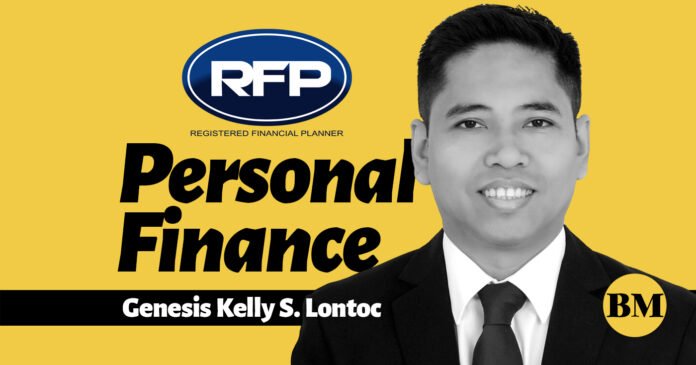FINANCIAL freedom can be described as the ability to live life on one’s terms. Saving and investing help achieve financial freedom.
However, adverse developments such as the Covid-19 pandemic bring about lost opportunities and lower income. These effects then put a strain on finances. Hence, to keep afloat, borrowing money is explored. It is therefore imperative to assess the role of debt in personal finance especially when times are tough. Is debt generally bad in nature? Is there such a thing as good debt?
Debt represents a financial obligation between a lender and a borrower. Amounts and timelines are specified. The principal amount must be paid by the borrower. The interest rate amount, which serves as the price of borrowing money, must also be paid by the borrower. In the Philippines, popular debt sources would be through banks, other lending entities, families and friends. The terms and conditions would greatly vary across the different debt sources so it is vital that there is clarity in the debt transactions.
Debt can be bad debt. Bad debt can be where the interest rate of borrowing is simply too high. This will be a problem in case future cash flows will not be able to keep up with the high interest rate levels. Bad debt can be where money is borrowed to fund goods and services that have no lasting value. Bad debt can be seen in the situation where lifestyle wants become priorities. Common examples of bad debt can be in the form of credit card debt and other personal loans that fund non-essentials goods and services.
Not all debt can be considered to be bad. It is possible that debt can really be good debt. Good debt is where the interest rate of borrowing is low and reasonable. Good debt can be seen in the situation where money is borrowed to fund goods and services that have enduring value. Good debt helps support present net worth and increase future value. Good debt can be a good tool for leverage in making sure that the future financial situation will show improvement with respect to saving, budgeting and investing.
Debt for education and training can be considered to be good debt. Benjamin Franklin once said that an investment in knowledge pays the best interest. Education is indeed the great equalizer in society. Having education and training will expand opportunities immensely for individuals. The ability to have good jobs and careers will lead to sustainable income streams. Apart from potentially giving people better lives, the economy benefits too from education since an educated citizenry can support the economy more.
Debt for business can be considered to be good debt. However, not all businesses are the same. It is important therefore for an entrepreneur to know the business in terms of key strengths, weaknesses, opportunities and threats in order to develop effective positioning and strategies in the market. Apart from a good business being able to have continuous income, it has multiplier effects to the economy like the provision of jobs and the contribution to fiscal revenues that support various government initiatives.
Debt for significant assets can be considered to be good debt. A housing loan can be treated as good debt if it provides lasting utility value to the family and offers financial gains in the form of price appreciation and additional revenue through rental income. A loan on tools to help generate income like machinery, equipment and vehicles can also be viewed as good debt if the assets help individuals earn more income. For the significant assets to really be effective, it is important that they are continuously maintained.
Debt can be good or bad. The difference lies in the interest rate amount and in the usage of funds. Good debt happens when money is used to build talent and acquire tools. Good debt happens when the financial benefits outlast the costs of debt. If done correctly, good debt can lead to a good life ahead.
Gemmy Lontoc is a registered financial planner of the RFP Philippines. To learn more about personal financial planning, attend the 89th RFP program this May 2021. To inquire, e-mail [email protected] or text <name><e-mail> <RFP> at 0917-6248110.
Read full article on BusinessMirror

